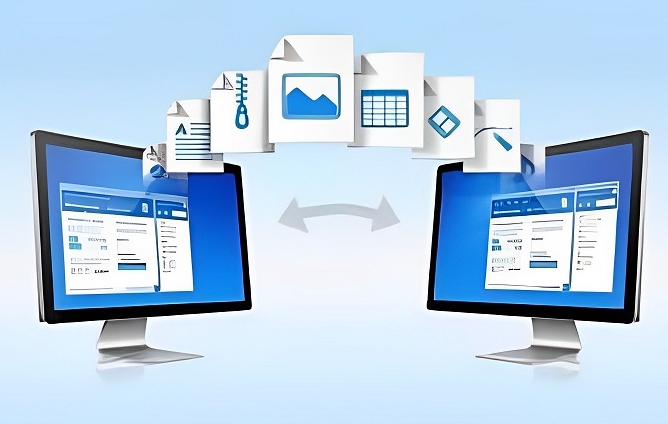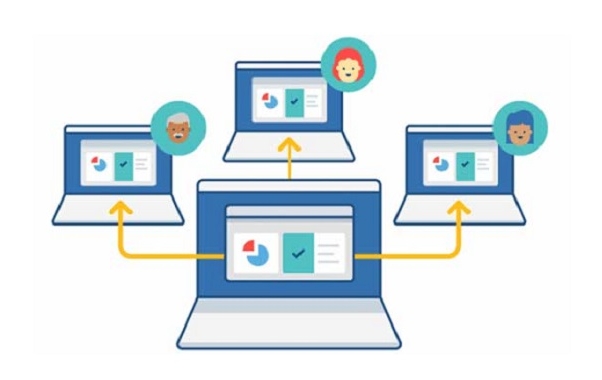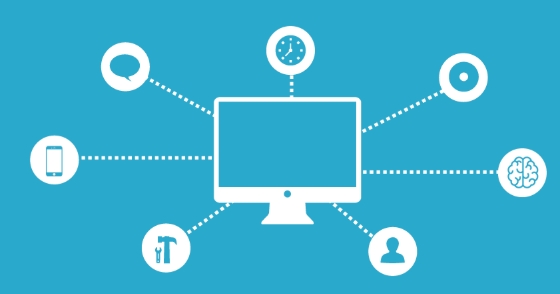To send Ctrl Alt Del in a Remote Desktop session, you cannot directly use the physical keyboard combination because it is intercepted by the local system. 1. Use the on-screen keyboard on the remote machine: open it, then click and hold Ctrl, Alt, and press Del in sequence. 2. Use the built-in RDP shortcut: press Ctrl Alt End on your physical keyboard while focused in the RDP window. 3. Configure Remote Desktop before connecting by setting keyboard input to "On this computer" under Local Resources for more predictable behavior. These methods work around Windows' security handling of Ctrl Alt Del to ensure safe remote access.

When you're working in a Remote Desktop session and need to send the Ctrl Alt Del command, it doesn’t work the same way as on your local machine. That’s because the key combination is usually intercepted by your local system instead of being passed through to the remote one.

Use the On-Screen Keyboard
One of the simplest and most reliable ways to send Ctrl Alt Del in a Remote Desktop session is by using the on-screen keyboard on the remote computer.

- Open the Start menu on the remote machine and search for “On-Screen Keyboard”
- Once it's open, click or tap the keys in this order:
- Press and hold
Ctrl - Then press and hold
Alt - Then press
Del, and release all keys
- Press and hold
This method works even if the RDP window isn't full screen. It avoids any confusion between local and remote key handling since you're interacting directly with the remote interface.
Use the Keyboard Shortcut Inside RDP
If you’re already connected via Remote Desktop, there’s a built-in shortcut that sends Ctrl Alt Del directly to the remote PC:

- Press Ctrl Alt End on your physical keyboard
This triggers the same security options screen (like lock, sign out, change password) on the remote machine as Ctrl Alt Del would if you were sitting in front of it.
Keep in mind:
- This only works inside an active Remote Desktop session
- Make sure your focus is on the RDP window when pressing the keys
- Some laptops or special keyboards may require holding the Fn key as well
Configure Keyboard Settings Before Connecting
If you often find yourself needing to send keystrokes like Ctrl Alt Del, it helps to set up Remote Desktop to handle keyboard input more predictably.
Before connecting:
- Open Remote Desktop Connection
- Click "Show Options"
- Go to the "Local Resources" tab
- Under "Keyboard", select "On this computer"
This setting tells Remote Desktop to treat keyboard input as if it’s happening on the remote machine. It won’t always let you send Ctrl Alt Del directly, but it makes other shortcuts behave more consistently during your session.
Why Can’t I Just Type Ctrl Alt Del?
The reason Ctrl Alt Del doesn’t work directly inside Remote Desktop is due to how Windows secures the login process. That key combination is handled at a low level by the operating system to prevent malicious programs from mimicking the login screen or capturing passwords.
Because of this, Windows doesn’t let Remote Desktop just pass through that exact keystroke unless you use one of the methods above — which is actually a good thing from a security standpoint.
That’s basically it. Whether you use the on-screen keyboard, the special shortcut (Ctrl Alt End), or tweak the keyboard settings ahead of time, you’ve got options. It’s not complicated, but it’s definitely different from what you’d expect if you're used to working directly on your own machine.
The above is the detailed content of How to send Ctrl Alt Del in a Remote Desktop session?. For more information, please follow other related articles on the PHP Chinese website!

Hot AI Tools

Undress AI Tool
Undress images for free

Undresser.AI Undress
AI-powered app for creating realistic nude photos

AI Clothes Remover
Online AI tool for removing clothes from photos.

Clothoff.io
AI clothes remover

Video Face Swap
Swap faces in any video effortlessly with our completely free AI face swap tool!

Hot Article

Hot Tools

Notepad++7.3.1
Easy-to-use and free code editor

SublimeText3 Chinese version
Chinese version, very easy to use

Zend Studio 13.0.1
Powerful PHP integrated development environment

Dreamweaver CS6
Visual web development tools

SublimeText3 Mac version
God-level code editing software (SublimeText3)
 How to create a custom brush in Photoshop
Jul 08, 2025 am 01:01 AM
How to create a custom brush in Photoshop
Jul 08, 2025 am 01:01 AM
The steps to create a custom brush in Photoshop are as follows: 1. Select a pattern with clear edges and suitable for brushes, such as hand-painted textures or photo parts, and adjust it to the appropriate size; 2. Use the "Magic Wand Tool" or "Quick Selection Tool" to remove the background to ensure that the pattern is in an independent selection; 3. Create a basic brush through "Edit > Define Brush Presets"; 4. Adjust the parameters such as "Shape Dynamic", "Scatter", "Text" and "Transfer" in the "Brush" panel to make the strokes more natural; 5. Finally, click "Save As Brush" to save as a .abr file for convenience of subsequent use and sharing.
 How to use the quick selection tool in Photoshop
Jul 06, 2025 am 12:01 AM
How to use the quick selection tool in Photoshop
Jul 06, 2025 am 12:01 AM
Photoshop's quick selection tool is suitable for selecting areas with similar colors and clear boundaries. The usage methods include: 1. Find and activate the tool, right-click or long-press to switch or press the shortcut key W to ensure that the layer is unlocked; 2. Adjust the brush size, combine the Alt or Option key to switch the selection mode, Shift key to add selection, and improve accuracy through the option bar setting sampling method; 3. Use the "Select the Subject" function to assist in selection, and then manually optimize edge details, especially suitable for portraits or product images.
 How to recover a corrupted AutoCAD file?
Jul 09, 2025 am 01:16 AM
How to recover a corrupted AutoCAD file?
Jul 09, 2025 am 01:16 AM
When AutoCAD file is corrupted, you can take the following steps to try to restore: 1. Check the automatic backup of the file, check whether there is a .bak or .sv$ file in the folder where the original .dwg file is located, and rename the .bak file to .dwg to open it; 2. Use the RECOVER command to try to repair the file, and if it fails, use the -OPEN command to open the file for partial recovery; 3. Use third-party tools such as DataNumenDWGRepair, RecoveryToolboxforDWG, etc. to deal with seriously damaged files. To prevent future damage, you should save regularly and use "Save As" to refresh the file structure, keep the software updated, avoid saving through network drives, enable automatic save and set up
 How to remove password protection from a PDF in Adobe Acrobat?
Jul 05, 2025 am 12:36 AM
How to remove password protection from a PDF in Adobe Acrobat?
Jul 05, 2025 am 12:36 AM
To remove PDF password protection, use Adobe AcrobatPro and have the document owner password. The steps include: 1. Open Adobe AcrobatPro and select a password-protected PDF file; 2. Enter the correct owner password; 3. Go to "Tools" > "Protection" > "Encryption" > "Remove Security"; 4. Click "OK" in the pop-up window to confirm the removal. If AcrobatPro is not available, you can ask others for assistance or use third-party decryption tools, but you need to pay attention to privacy risks. Common problems include invalid password, grayed out security settings, and prompting for passwords after removal. The solution is to check password input, try to convert file formats, or update software versions. If it cannot be resolved, please contact A
 How to fix remote desktop connection issues
Jul 08, 2025 am 01:03 AM
How to fix remote desktop connection issues
Jul 08, 2025 am 01:03 AM
Remote Desktop connection problems can be checked through the following steps: 1. Check the network and firewall settings to ensure that the TCP3389 port is open; 2. Confirm that the remote desktop function is enabled and supported by non-home version systems; 3. Verify user permissions and belong to the "RemoteDesktopUsers" group or administrator; 4. Handle black screen or lag, adjust the display options or restart the remote computer. Check them one by one in order, and most problems can be solved.
 How to get Photoshop for free
Jul 12, 2025 am 12:34 AM
How to get Photoshop for free
Jul 12, 2025 am 12:34 AM
Adobe Photoshop does not have a permanent free version, but can be legally used in the following ways: 1. The official website provides a 7-day free trial, complete functions but automatic renewal is required; 2. Use a simplified version based on the browser (Beta), which supports basic editing functions; 3. Students or teachers can obtain a full-featured version through the school education plan; 4. Consider alternative software such as GIMP, Photopea, Krita or Canva Pixlr to meet daily needs. The above methods can meet the needs of different users and ensure legal and compliant use.
 AutoCAD 3D modeling tutorial
Jul 10, 2025 pm 12:20 PM
AutoCAD 3D modeling tutorial
Jul 10, 2025 pm 12:20 PM
Friends who are just beginning to get involved in AutoCAD3D modeling can start with the following steps: 1. Start practicing from basic geometry (such as cubes, cylinders, spheres), use BOX, CYLINDER, SPHERE and other commands to build simple models and combine them into complex structures; 2. Master Boolean operations (UNION merge, SUBTRACT cutting, INTERSECT intersection) to create solid models with holes or combined structures; 3. Pay attention to the settings of the view and coordinate system (UCS), switch the view angle to understand the structure, and ensure the correct operation direction by adjusting UCS; 4. After completing the modeling, it can be exported to STL, STEP or IGES format for easy printing or sharing, and use SECTIONPLANE







